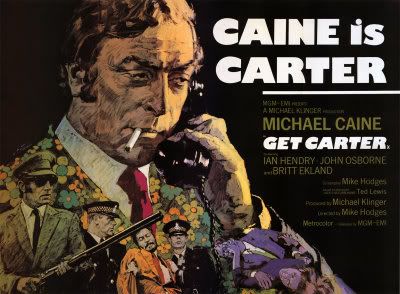
I've recently run across the name Henry Luce in two different books. In his introductory essay ("What, then, is the American?") to The Cambridge Companion to Modern American Culture, Christopher Bigsby** writes, "When...Henry Luce declared the reality of the American Century he was merely registering the logic that had placed power, and, it has to be said, responsibility in American hands; the Project for the New American Century, by contrast, was a conscious effort to ensure that Americans remained the dominant culture." Check out the Project for the New American Century's Statement of Principles.
In Susan Faludi's Stiffed, on the other hand, Faludi argues that Luce's labeling, more than being descriptive, was an effort to steer American culture (and masculinity) towards one ethos and away from another.
"Towards the end of the war, two visions of postwar America vied for attention on the national stage in a battle over the nation's future that has long since been forgotten. One contender was [Henry] Wallace's Common Man century; the other was Henry Luce's American Century...Luce, the founder and editor of Time and Life magazines, saw America as a masculine nation whose manifest destiny was to loom like a giant on the global stage. He proposed the average man acquire a grander sense of himself by association with a nation that would dominate the world through unapologetic force. If Wallace's manly ideal was about parental care and nurturance, Luce's was all about taking control---and, even more important, displaying it."
"Luce's 'cure'---'to exert upon the world the full impact of our influence, for such purposes as we see fit and by such means as we see fit'---would prove to be a postwar prescription for aggression."

Of Wallace's Common Man, Faludi write,
"Wallace imagined an army of ordinary workingmen who, if given a shot a decent educations, jobs, and housing, could be a force on 'the new frontier' for expanded production, well-being, and democracy not only in the nation but throughout the world...Wallace saw America as 'a boy of eighteen' who could no longer 'avoid becoming a man by wearing short pants' and who could mature into a 'grown-up United States' by stoically 'shouldering our responsibility,' by contributing to the needs of the world rather than simply aspiring to dominate it. America's mission, he said, only half jokingly, should be to ensure 'that everybody in the world has the privilege of drinking a quart of milk a day.' He was guided, as historian John Morton Blum has written, 'by his belief in the possibility of brotherhood and the inherent virtue of husbandmen.'"
Ultimately Stiffed is about how changes within larger structures in our country, namely, the government, corporations, and our economy, has affected American masculinity (ie, massive layoffs have done more damage to American masculinity than the feminist movement). Reading the introduction to Stiffed and in particular Faludi's discussion of Luce's and Wallace's competing views for America's future couched in the metaphor of the "ideal American man," I remembered Barrack Obama's Father's Day Speech this past summer. At the time, I remember some people felt that Obama was unfairly criticizing African American fathers, but reading it now, through the lens Faludi creates, I'm wondering if Obama's "ideal father" is really more of a Luce/Wallace metaphor.
Obama argues that the ideal father will pass on three qualities to his children: (1) the "ethic of excellence" ("achievement, self respect, and hard work"), (2) "the value of empathy" ("We need to show our kids that you’re not strong by putting other people down – you’re strong by lifting them up."), (3) "the spirit of hope" (the "spirit inside us that insists, despite all evidence to the contrary, that something better is waiting for us if we’re willing to work for it and fight for it. If we are willing to believe.").
Obama makes an explicit connection between father's responsibility to their children and Washington's responsibility to parents. Obama says, "[I]t’s a responsibility that also extends to Washington. Because if fathers are doing their part; if they’re taking our responsibilities seriously to be there for their children, and set high expectations for them, and instill in them a sense of excellence and empathy, then our government should meet them halfway." He then goes on to list several examples of how Washington can help parents, including reforming child support laws, expanding pre- and postnatal care to pregnant women, protecting workers through protecting maternity and paternity leave.
I hear echos of the "Common Man." I wonder what an America of excellence, empathy, and hope would look like. I hope I get to see it.
(**Incidentally, just a few paragraphs earlier, Bigsby also mentions Rick Warren. "In 2002, 59 percent of Americans believed that the apocalyptic prophesies of the Book of Revelations would come true and 39 percent believed in the literal truth of the Bible. The end, it seemed, might be night, the moment when the chosen and the damned would be separated. Among the bestsellers of the new century were The Purpose Driven Lifestyle (total sales to date, 20 million), written by Rick Warren, head of one of America's five largest mega-churches and at the heart of a global religious network.")




















